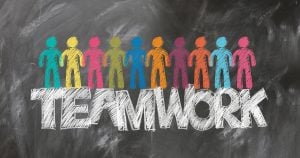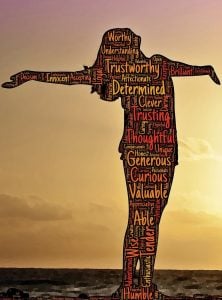Pro-Calibre –The great team player
Team Management rates surprising second in employability skills
There are ten employability skills highly regarded by corporations today. When Kent University conducted a survey to uncover and rate the most valuable, the results were surprising. With Time Management at number ten and Verbal Communication rated at number one, Teamwork came in at a surprising number two.
We have a whole range of soft skills training workshops available!
Natural skill or inherent talent?
When you consider the skills of Teamwork, trying to define or explain it can sound like a cliché. Is a great team player naturally gifted or can an understanding of the skills take an average professional and turn them into a pro-calibre player?
Maybe this story can explain. There were two elite footballers (strikers) who played for one of the biggest clubs in UK if not the world. There was history between the two and a grudge had developed. It was alleged they never spoke off the field. However, on the field they played their hearts out and in 1999 the team won everything; European Cup, Premiership and FA Cup.
Maintaining Team Integrity
But both players knew that if the team won, as individuals they won. And the team won big time. Yet how can a person work with someone they don’t like? If I don’t like working with someone should I speak my mind and instigate subtle efforts to be abrasive? What if I refused to work with them? The results may not be in your favour. The Manager of the successful football team was notorious for removing players, even superstars, to maintain the integrity of the team. So is the true calibre of the Pro being able to remain professional even if it goes against their personal feelings?

Merging Personal and Team Identity without Sacrifice
History must be our guide. From monstrous buildings to feats of genetically empowered science, when our minds and efforts merge, we not only reach for the stars, we grab one. It is the strength of the team that consistently outperforms expectations and embodies company ethos. The philosophy that together we stand, with similar ideals and a fierce goal to win, that will reap the rewards.
Pro-Calibre; Raising your Game
That Pro-Calibre can only be defined when I make others feel that their contribution is important, no matter how small. The level of my job status in hierarchy can only add the dynamic potency to this. As a Leader this ability to acknowledge contribution can set a tone of business that all who come in contact will intuitively recognise. And consequently, they will want more exposure to it. This isn’t a feel good factor it is the attitude of wanting to win, to be the best. It raises our game. For most professional coaches there is a line of thought that there are ten qualities that make a great team player. I think there is just one. What do you think? In a team is it the recognition of others that inspires your performance, or is it the pay cheque?
How about raising your game even further through training? We have finance for non finance managers London courses as well as a number of minute taking courses available. See which training soft skill course would suit you!
 Becoming centred in your own worth is absolutely crucial for self-esteem and
Becoming centred in your own worth is absolutely crucial for self-esteem and